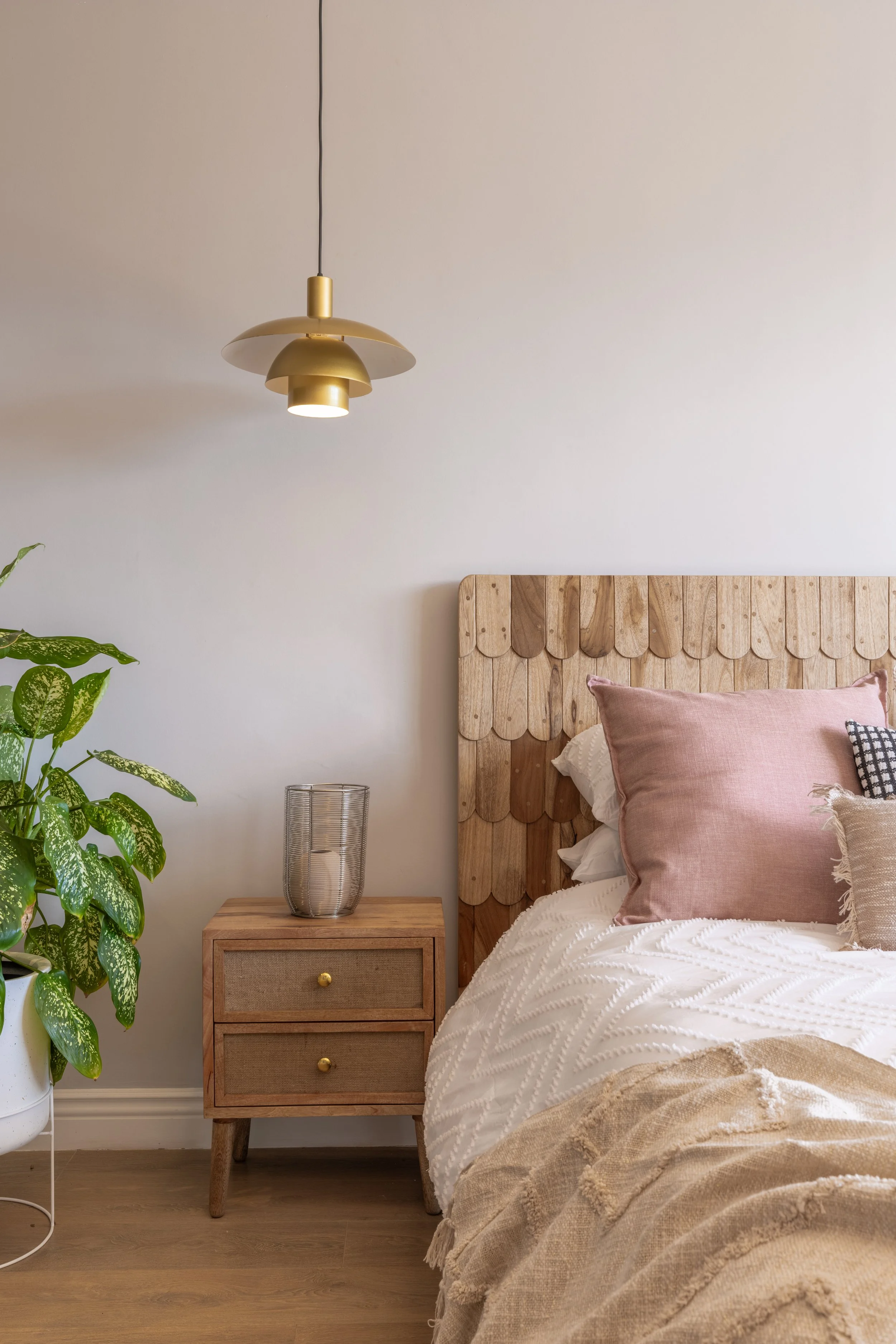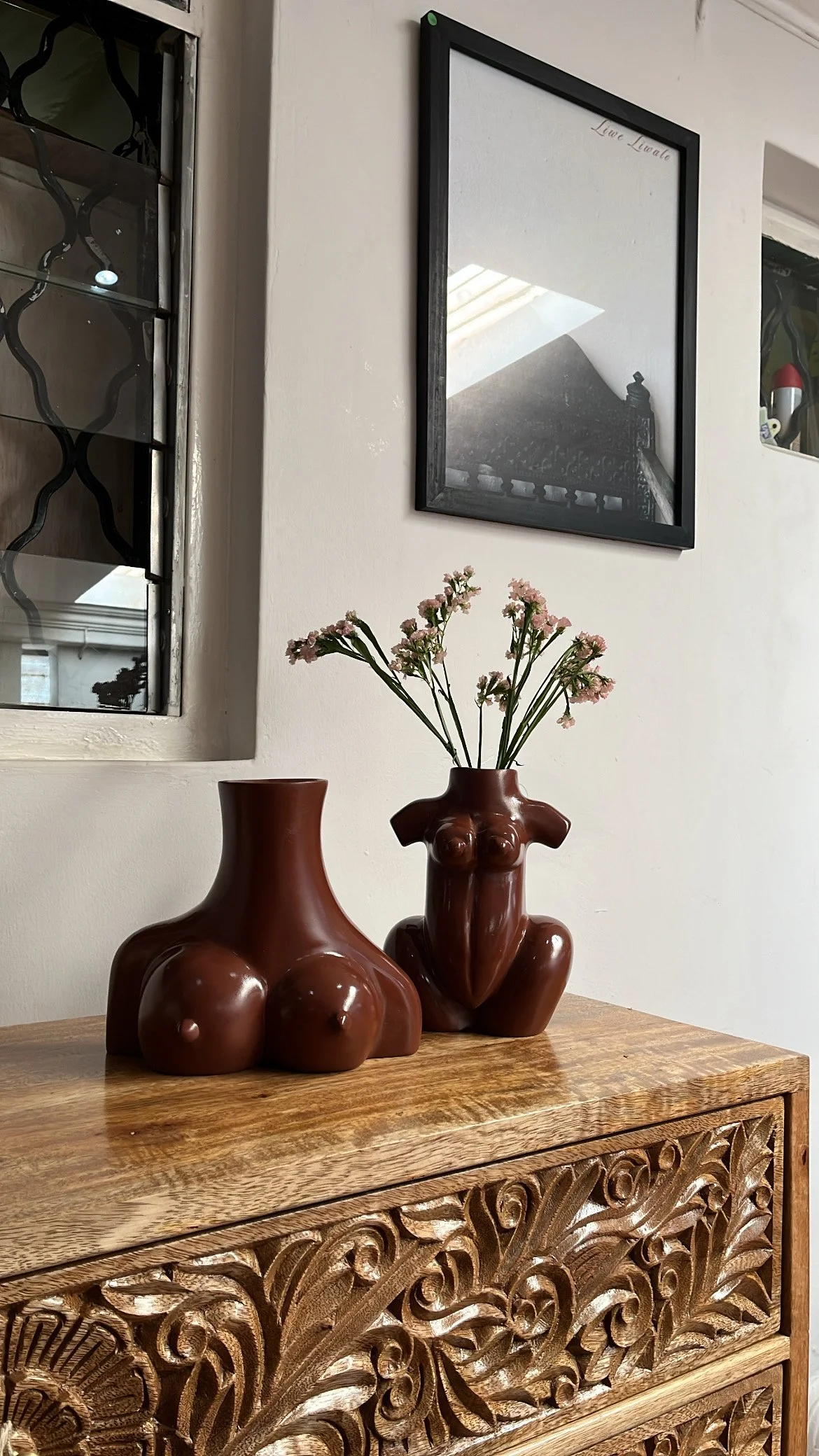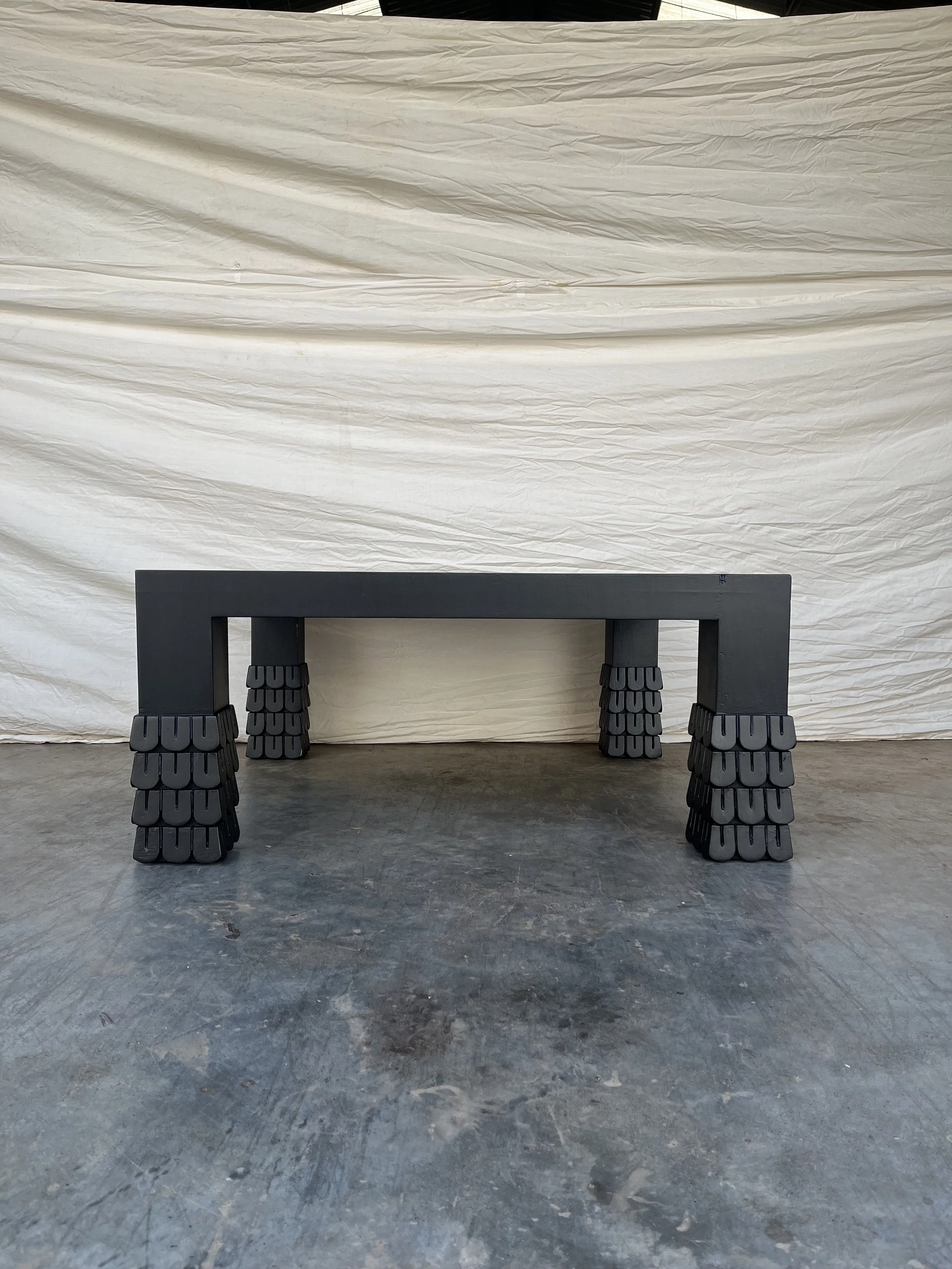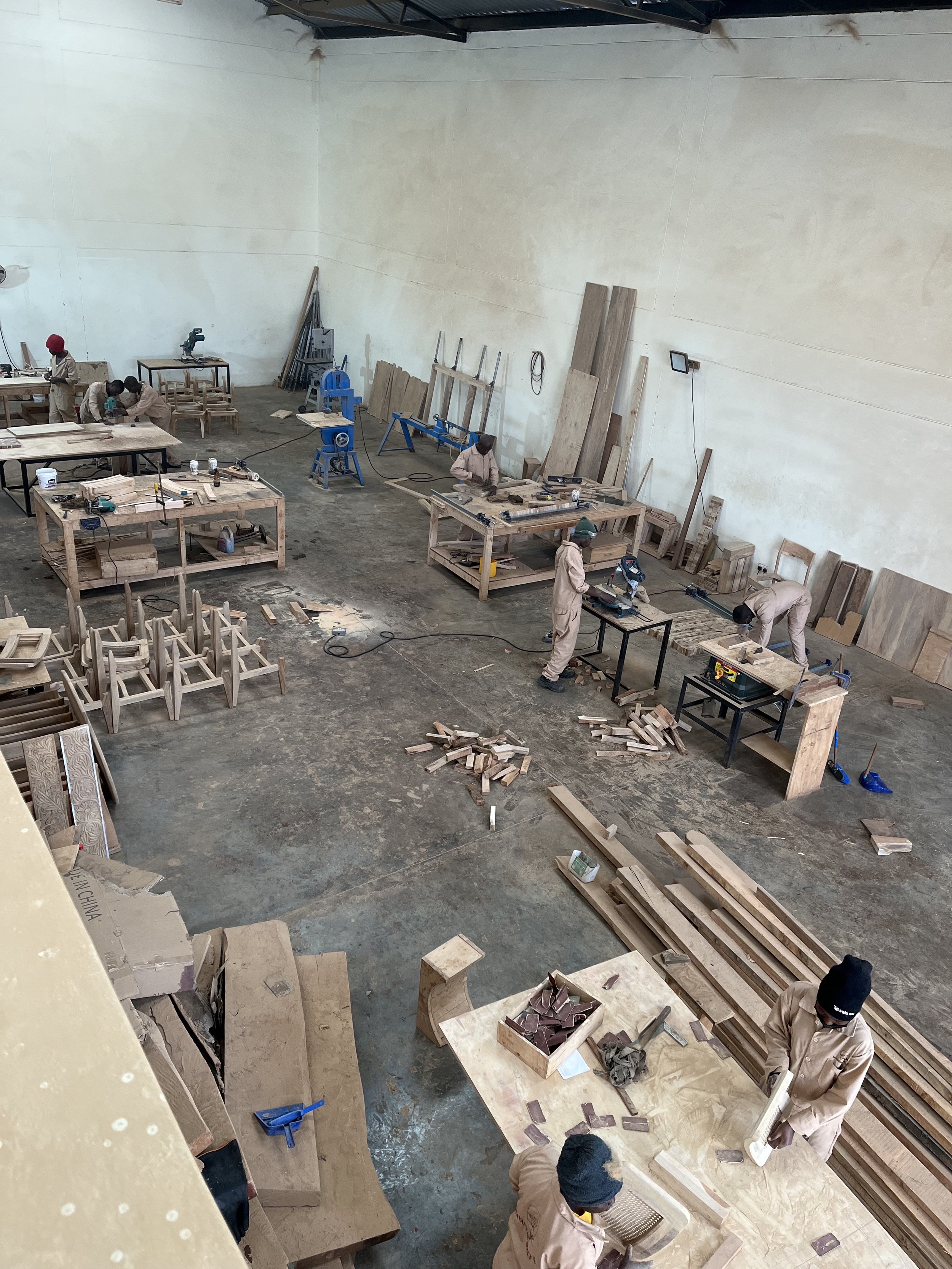Savannah Space
The Makers Series / Profile
Founded by Cherie Kihato, Savannah Space is a furniture brand with its roots in Kenya. Designed and made locally, each piece is inspired by the African continent and Kenya’s textiles and motifs, traditions, music, people, and nature, to create contemporary furniture with a distinctly Kenyan point of view.
Photography credit: Cherie Kihato. All rights reserved
The Beginning
Can you tell us about yourself, Cherie, as the founder and designer behind Savannah Space
This is always a hard question to answer! First and foremost, I’d say I’m a child of God, my relationship with God is central to who I am, and has carried me through so much. Beyond that, I’m a sister, girlfriend, friend, and, at my core, a storyteller. Whether through Savannah Space, my content, or many of the things I do, I’ve come to realize that storytelling is truly a gift I carry.
Can you tell us the story behind Savannah Space? What sparked the idea, and was there a particular moment when you knew you wanted to create a space for Kenyan craftsmanship?
I came back home after studying Politics and Philosophy at university, thinking I’d step into the development world, the United Nations, NGOs, that whole space. And for a while, I did. I interned at an international corporation, but when I applied for a full-time role, they told me I needed three years of experience. I remember going home that day, journaling, trying to figure out my next move when a single, clear thought came to me: “You’re going to start a furniture brand. It’ll be made in Kenya, and it’ll be called Savannah Space.”’ I know for a fact that God told me this because, honestly, how random? The next day, I started researching what all that meant, and I’ve been carrying that vision forward ever since.


On Craft and Culture
Your work celebrates local artisans and materials. How did your relationship with Kenya’s craft traditions begin, and what keeps you rooted in them?
I’ve always loved beautiful homes. Before my mum passed away, one of our little hobbies was going to open houses just to admire the spaces and dream a little. At the time, I never imagined design could be a career; I saw myself more as an innocent bystander, simply appreciating beauty from the sidelines. When I started Savannah Space, I slowly learned more about craftsmanship and fell completely in love. I realised that I actually have an eye for it and grew my talent through lots of research and experimentation. What keeps me rooted is my belief in the talent we have here in Kenya. We have so many incredible men and women in the artisan field who are not celebrated as much as they should be, and my determination to tell their story and put Kenya at the global forefront of design is what keeps me going.
What does “home” mean to you? How does that idea influence the pieces you design or curate?
Home is Kenya. It really is that simple. I’ve lived in different parts of the world before, but I never feel at home more than I do when I’m in Kenya. It’s where I was born, where I’ve experienced the most joy and the most pain- it's my home. I think it influences my design process by giving me a deep sense of belonging.


The Process
Can you walk us through a day at Savannah Space? From workshop to showroom, what does making something beautiful look like behind the scenes?
It's not really a linear process, the way most people would think. I'm the founder as well as the lead designer here at Savannah Space, so I have to wear a lot of hats. Some of my days consist of admin, financial forecasting, speaking with our investors, going over systems with the team, etc, and some of my days are spent doing more of the ‘fun’ stuff like drawing up designs, prototyping at the workshop, and more. I think getting a design from paper to product involves all those things. I always say that doing the boring stuff is what allows us to do the fun stuff. So I may draw a design on paper, but in order for me to take it to the workshop, prototype, iterate, and create the final product, I also need to make sure our finances are in order, our systems are working well, our bills are paid, etc.
You work closely with artisans across the country. What’s one story from those collaborations that stays with you?
Oh, definitely, when I was explaining the design for our soapstone vases that are designed after the female form. I had to explain to the male carvers that we need one boob bigger than the other because women are naturally like that — it was a hilarious conversation!!
On Sustainability and Meaning
In a world of ‘fast furniture’ and fleeting trends, why do you think it matters to invest in pieces with a story?
Firstly, it's essential to understand that many pieces with a story are investments and not accessible to many people in the world. I am not pro fast furniture but I understand that a lot of people are just trying to survive and do not have the mental space or the purchasing power to not buy fast furniture. If you can afford them, though, pieces that tell a story often have a direct impact on marginalised communities. When you buy from small brands, you can physically see the positive effect it has on people and communities. One sale goes such a long way for a small business. Additionally, if you invest in high-quality pieces with a story, you can pass this same story down through generations, keeping history and craftsmanship alive.
How do you balance function and beauty? When you create or source a piece, what makes you say, this belongs in someone’s home?
Gosh, this question is way too nuanced. It’s like asking what makes something art or what makes good art? I don’t have an answer to this. I suppose it’s a feeling.
Reflections
If we were to step into your home today, what would we notice first? Is there one object that tells your story?
Honestly, you would notice all my furniture because it’s extremely high quality. We use solid wood, sustainably sourced, and finish our pieces to perfection- that kind of quality is noticed immediately!
Looking ahead, what do you hope Savannah Space will teach people about Kenyan design?
That high quality and made in Kenya are not mutually exclusive!
What are you currently working on or dreaming up for Savannah Space? We’d love a peek into what’s next!
We’re really trying to figure out how to expand to new markets. Our pieces have recently been resonating with so many people all over the world, and the demand is growing. We just need to figure out how to get our pieces out there!

